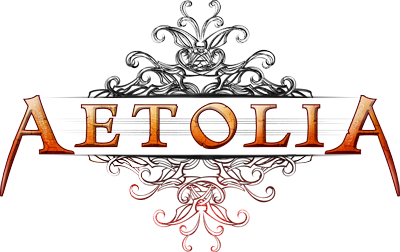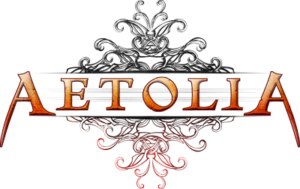4.14.2 Character Interaction
Questions asked in this file:
- What are the necessities of roleplaying?
- What things exist in Aetolia to aid in roleplaying?
- How do metagame things like spelling and grammar contribute to
roleplaying?
Q: What are the necessities of roleplaying?
- The attraction of a roleplaying game is its potential to immerse its
players in extraordinary circumstances. The key to maintaining this
immersion is the consistency with which we present our roles to each
other and the realism with which we react their context.
- In Aetolia, you are ALWAYS roleplaying, and ALWAYS "on stage",
acting as your character. This is referred to as "In Character", or
IC. Conversely, acting like something outside of the world, such as
if Hamlet were to talk about televisions, is "Out of Character", or
OOC.
- Detail is also necessary to roleplay, especially in text-based
games. The more details there are, the better the imagery, the
better and more real the experience, to an extent.
- Imagination is required! Creativity and ingenuity are the most
useful tools available to you when you are roleplaying. Don't be
afraid to try.
Q: What things exist in Aetolia to aid in roleplaying?
- Aetolian history, mythos, and religion help you further define
your character. The enormous world and its varied environments give
you unique places where your drama can unfold. This includes
comfortable inns, dark forests, underground prisons, underwater
cities, islands, and frozen mountains. The changing seasons and
weather also offer things for you incorporate into your roleplay.
- Emotes and custom emotes (HELP EMOTES & HELP EMOTIONLIST) are also
a highly useful tool when roleplaying. Emotes are preset expressions
that allow you to convey different feelings and actions with ease.
Custom emotes allow for a greater amount of creativity and in-depth
expression. There are also emoticons that may be appended to the end
of your speech to modify what type of speech you are using (HELP
EMOTICONS). General use of emoticons is frowned upon, but when used
properly they can further add depth and emotion to your speech.
- If you pay attention to what YOU do every day, you're almost always
interacting with something, whether you're eating it, looking at it,
stabbing with it, or reading it. Weapons, clothes, food, furniture,
and more all exist to be included in your action and create a
deeper, more immersive experience. It's easy to just EMOTE about an
item you don't possess, but when such an item actually 'exists,'
with its own descriptions and functions, it makes the RPing
experience all the better. For example, the Paladin knights used to
EMOTE holding a special blade to knight their squires. Now there's
an actual Ceremonial Blade which people can see and hold, and it
makes the ceremony all the better.
- There should always be people willing to roleplay with you - simply
wander in and begin acting like your character! The guild- and
city-systems are great social structures that provide the necessary
player interaction.
- Some skills, such as Illusion and Hallucinate, allow you to write
new lines from scratch, and though these are intended for combat,
they make wonderful roleplay devices.
Q: How do metagame things like spelling and grammar contribute to
roleplaying?
- If a player cannot communicate, it will be impossible for others to
visualize the role they are trying to play. Remember that emotes
are seen, and says are heard - if any errors are made, you can
address them properly as a slip of speech, etc. Your characters do
not make "typos".
- There is an inevitable human tendency to associate low intelligence
with poor communication. It is hard to take an "intelligent"
character seriously when he cannot articulate himself.
- If you are reading a book with a typo or grammatical problem in
every paragraph, how long would you keep reading? It's distracting!
Even OOC, it is irritating, which is unfortunate if English is your
second or third language. The attraction of roleplaying games lies
in their ability to immerse their players.
- Web-slang is used by those who are hastily trying to get their
messages across, whereas good spelling and grammar shows patience
and attention to detail, which is vital for roleplaying.
See also: RP, ROLE

